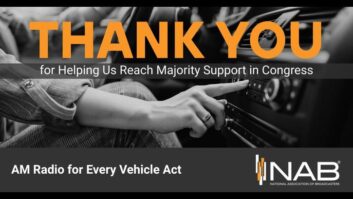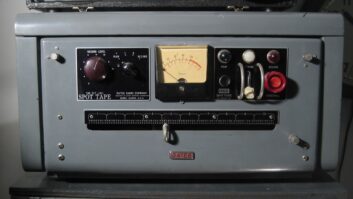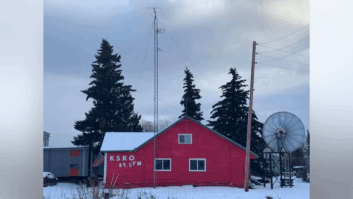
Research Director Inc. says it’s time to come off the ledge about Radio Disney’s planned sell-off of most of their stations and that radio is not doomed.
Radio Disney launched in November of 1996. Radio World readers will recall the passage of the revision of the Communications Act earlier that year sent the prices of both AM and FM stations soaring, but AMs were still more affordable. That’s why Radio Disney had mostly AMs.
But the larger issue at hand, says Annapolis, Md.-based RDI in an op-ed, is the programmer was targeting children. Back then, Arbitron diaries excluded those under age 12. Now, the top 48 markets have converted to the Portable People Meter, which includes young people age 6 to 11.
“We don’t know how many of these 24 Radio Disney O&Os, if any, had large enough audiences to be reported in their local Nielsen Market Reports, but we have not observed any Radio Disney stations that had competitive radio ratings,” says RDI.

Radio Disney said last week its own research shows that most of its listening (82%) happens on its existing SiriusXM channels and online.
RDI says it’s an oversimplification and incorrect conclusion to assume Disney’s planned radio sell-off means “radio towers are going to go the way of the buggy whip.”
Calling Radio Disney a “bold experiment,” RDI says its affiliate list shows more than 60 former affiliates dropped the format over the past decade or so. “One must ask if it is fair to compare the reach of two national distribution platforms (SiriusXM and RadioDisney.com) with the potential reach of only 24 radio stations. How many of the potential listeners in this limited number of markets even knew they could listen to Disney content on the radio? A lack of marketing alone could have forced potential radio listeners to Disney’s online and Sirius alternatives.”
Radio towers that broadcast desirable content with the best fidelity will still succeed, according to RDI.
Analyzing what could have gone wrong for Disney, the research firm says their attempt to play music on AM limited their available audience and the problem of their audience growing out of the format made for a cume dilemma. “While necessary, marketing to build [tune-in] may not have been cost-effective for Disney.”







